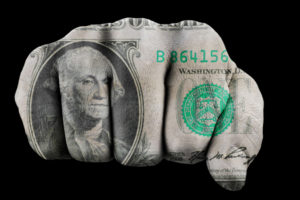Did banks decide too late on lowering interest rates?
Were the stock exchanges saved from deeper declines? This question arises on many issues regarding central bank responses to the current global situation. In many discussion groups and in the comments under current market analyzes, many doubts arise in the context of whether it was possible to prevent such drops that we are currently experiencing. Certainly, both sides of these considerations agree that rather no one predicted that the virus will become as much of a burden as it is now for stock exchanges and that it will grow to the size we are dealing with today. Dedication is in these matters really a lot without ignoring the strictly economic aspects.
Strong steps taken
The vast majority of central banks decided to lower interest rates, thus allowing the market access to cheaper money. It is known that they will have a real impact on the economic situation only with a delay. The allergic reaction of most European institutions creating fiscal and monetary policy is justified. Each of them decided and this step even one after the other. It should be said with great caution that these actions will currently bring little result, and their main goal will be to "cushion" the stagnation of the economy.
A much better solution is the one that was used yesterday by the ECB. European Central Bank he decided to take decisive steps and launched an asset purchase program. Of course, its flagship goal is to maximally reduce the economically adverse effects that the epidemic will bring us. The European institution's purchases are expected to reach EUR 750 billion to be spent for this purpose by the end of the year.
A look at the Polish market
While the zloty has not been surprising in the last few days (there is no reason to do so), the Warsaw Stock Exchange began to attract a little more attention. The last session ended up in the black, which should obviously not be a reason for speculation in the context of permanent rebound. Germany, the French and the English also gained some breath on their indices. However, it looks like a calm before the storm than the first significant demand response on the market. How will it be Time will tell.

Chart WIG20 index, H1 interval. Source: xNUMX XTB xStation
Undoubtedly, the indexes from a purely technical point are in an interesting moment. Nevertheless, the lack of even a small foundation for optimism means that yesterday's ratings look like a trap for reckless traders. Of course, I do not exclude rebound (day or 2 days), but I would be extremely cautious about these instruments in the coming days.
WIG20 behaves exactly like a zloty against a dollar or euro. You can feel strong depreciation of our domestic currency on both stocks (USD / PLN and EUR / PLN). The WIG20 index did catch some breath. This breath looks more like a correction of recent downside gaps on H1 than a chance for a lasting rebound.
Could it be prevented?
However, they are independent of the markets and ourselves, such as an epidemic, whose development we could not (and still cannot) foresee. Central bank responses are largely focused on maximizing the effects of coronavirus rather than reversing global trends. They are obviously beneficial in the context of improving future economic situation, but their significance and impact (mainly on the currency market) not only went unnoticed, but will not be of key importance in exchange rates. Purchase programs, which the European Central Bank can already be proud of, will be much more important given the speed of their operation. Although the expenditure on this goal is planned to be implemented throughout 2020, the effect will be felt much faster.






















![Forex Club – Tax 9 – Settle tax on a foreign broker [Download the Application] Forex Club - Tax 9](https://forexclub.pl/wp-content/uploads/2024/02/Forex-Club-Podatek-9-184x120.jpg?v=1709046278)
![Trading View platform – solutions tailored to the needs of traders [Review] trading view review](https://forexclub.pl/wp-content/uploads/2024/03/trading-view-recenzja-184x120.jpg?v=1709558918)
![How to connect your FP Markets account to the Trading View platform [Guide] fp markets trading view](https://forexclub.pl/wp-content/uploads/2024/02/fp-markets-trading-view-184x120.jpg?v=1708677291)
![How to invest in ChatGPT and AI? Stocks and ETFs [Guide] how to invest in chatgpt and artificial intelligence](https://forexclub.pl/wp-content/uploads/2023/02/jak-inwestowac-w-chatgpt-i-sztuczna-inteligencje-184x120.jpg?v=1676364263)


![WeWork – the anatomy of the collapse of a company valued at $47 billion [WeWork, part II] wework bankruptcy story](https://forexclub.pl/wp-content/uploads/2024/04/wework-bankructwo-historia-184x120.jpg?v=1711729561)
![Adam Neumann – the man who screwed up Softbank [WeWork, part AND] adam neumann wework](https://forexclub.pl/wp-content/uploads/2024/04/adam-neumann-wework-184x120.jpg?v=1711728724)





![How to transfer shares to another brokerage office [Procedure description] how to transfer shares to another brokerage house](https://forexclub.pl/wp-content/uploads/2024/03/jak-przeniesc-akcje-do-innego-biura-maklerskiego-184x120.jpg?v=1709556924)

![The most common mistakes of a beginner trader - Mr Yogi [VIDEO] Scalping - The most common mistakes of a beginner trader - VIDEO](https://forexclub.pl/wp-content/uploads/2024/03/Scalping-Najczestsze-bledy-poczatkujacego-tradera-VIDEO-184x120.jpg?v=1711601376)
![Learning patience: No position is also a position - Mr Yogi [VIDEO] Scalping - Learning patience - No position is also a position - VIDEO](https://forexclub.pl/wp-content/uploads/2024/03/Scalping-Nauka-cierpliwosci-Brak-pozycji-to-tez-pozycja-VIDEO-184x120.jpg?v=1710999249)
![When to exit a position and how to minimize losses - Mr Yogi [VIDEO] Scalping - When to exit a position and how to minimize losses - VIDEO](https://forexclub.pl/wp-content/uploads/2024/03/Scalping-Kiedy-wyjsc-z-pozycji-i-jak-minimalizowac-straty-VIDEO-184x120.jpg?v=1710336731)


















